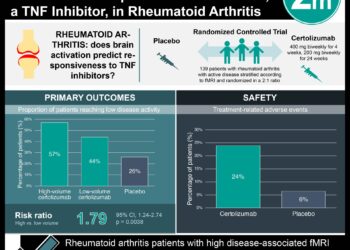Meta-analysis suggests novel oral anticoagulants might be safer than warfarin for atrial fibrillation
Image: CC/J. Heuser
Key Study Points:
- The use of novel oral anticoagulants in atrial fibrillation was associated with small but statistically significant reductions in several outcomes: overall and cardiovascular mortality, stroke, systemic embolism, intracranial bleeding, and a trend towards fewer major bleeding events, in this meta-analysis of studies comparing them to vitamin K antagonists such as warfarin.
Primer: Several validated risk prediction tools such as the CHADS2 and CHA2DS2-VASc scores call for the treatment of atrial fibrillation patients at high risk for stroke or embolism with warfarin. In these patients, warfarin provides a 66% reduction in risk of stroke compared to no therapy. However, its use has several limitations including an increased risk of life-threatening bleeding, the requirement for constant laboratory monitoring, and multiple food and drug interactions. The past decade has seen the emergence of novel oral anticoagulants (NOACs) such as dabigatran (a direct thrombin inhibitor) and rivaroxaban and apixaban (factor Xa inhibitors) which do not require frequent monitoring and have fewer interactions. Previous randomized controlled trials (RCTs) have demonstrated NOACs are non-inferior to VKAs in the treatment of atrial fibrillation. This meta-analysis sought to reassess the comparison by harnessing the power of several randomized trials.
Background reading:
- Connolly SJ, Ezekowitz MD, Eikelbloom YS, et al. Dabigatran versus warfarin in patients with atrial fibrillation; N Engl J Med 2009; 361:1139.
- 2. Patel MR, Mahaffey KE, Garg J, et al. Rivaroxaban versus warfarin in nonvalvular atrial fibrillation; N Engl J Med 2011; 365:883.
- 3. Granger CB, Alexander JH, McMurray JJV, et al. Apixaban versus warfarin in patients with atrial fibrillation; N Engl J Med 2011; 365:981.
In this [systematic review and meta-analysis] published online ahead of print in Circulation, Dentali et al pooled the results of 12 RCTs including a total of 54,875 patients. Eight studies were phase II RCTs and 4 studies were phase III RCTs. In all studies, the VKA used was warfarin.
The outcomes of the study are as follows:
| NOACs | Warfarin | Relative Risk (95% CI) | |
| All-cause mortality | 5.61% | 6.02% | 0.89 (0.83-0.96) |
| Cardiovascular mortality | 3.45% | 3.65% | 0.89 (0.82-0.98) |
| Stroke or systemic embolism | 2.40% | 3.13% | 0.77 (0.70-0.86) |
| Major bleeding | 4.90% | 5.54% | 0.86 (0.72-1.02) |
| Intracranial bleeding | 0.59% | 1.30% | 0.46 (0.39-0.56] |
No difference in the rates of myocardial infarction was observed.
In sum: This large meta-analysis suggests NOACs may provide a more efficacious, more convenient and safer alternative to warfarin in patients with atrial fibrillation.
One limitation, common to meta-analyses, is overstatement of results due to a publication bias within the literature. The asymmetric funnel plots for stroke or embolism and MI do suggest publication bias. Moreover, the size of the differences in outcomes is small, with relative risks close to 1. This raises the question of whether these statistically significant results are truly clinically significant.
Overall, the promise of these results is tempered by the absence of a clear path to the clinic. The heterogeneity inherent in combining several agents of different classes in many populations has masked results specific to any one agent or population. So, clinicians currently treating patients with warfarin cannot accurately infer from this study whether or not to switch a particular patient to a particular NOAC. They must rely on their clinical judgment in applying these results.
Click to read the article in Circulation
By [MM] and [MP]
© 2012 2minutemedicine.com. All rights reserved. No works may be reproduced without written consent from 2minutemedicine.com. DISCLAIMER: Posts are not medical advice and are not intended as such. Please see a healthcare professional if you seek medical advice.




